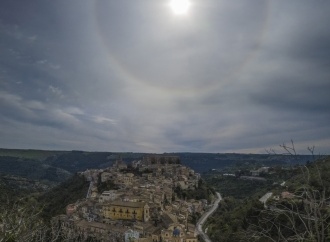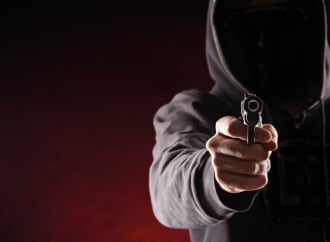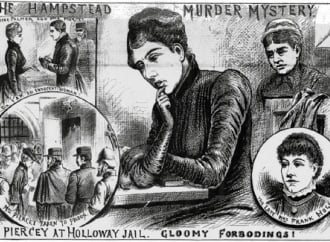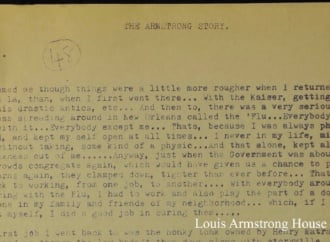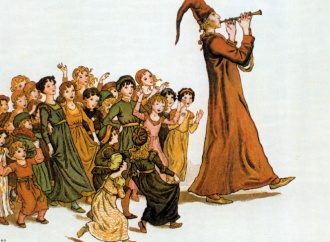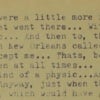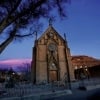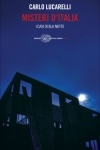It appears the powers of thousands of alleged psychics failed to predict misfortune and financial ruin at the nation's first psychic phone network. On February 2, Inphomation Inc, the company that operates Psychic Friends Network (PFN), filed for Chapter 11 bankruptcy protection. The company, based in Baltimore, Maryland, listed liabilities of $26 million and assets of $1.2 million.
Launched in 1990, Inphomation pioneered the use of '900' phone lines, spawning ubiquitous late night and Saturday afternoon infomercials. The 30-minute infomercials were hosted by singer Dionne Warwick, and were supported by a network of 2000 psychics. Estimated revenue for the company in the early 90's totaled close to $125 million, but in recent years competition and mismanagement combined to put Inphomation into debt.
Despite the recent bankruptcy of PFN, the psychic network industry is booming. Analysts predict the industry to rake in annual revenues from $1.4 billion to 2 billion by the end of the century, a dramatic increase from $620 million in 1994. Networks like Psychic Readers(PRN), Psychic Believers Network(PBN) and Psychic Encounters charge upwards of $4.99 a minute, potentially turning a 30-minute call into a $150.00 bill.
The rapid growth in psychic networks can be attributed to the merger of traditional belief in psychic power with the explosion of the mass media. It began in 1984, when the FCC deregulated the amount of broadcast time stations could allocate advertisements. With the average American watching four hours of television a day, entrepreneurs recognized a captive audience, and the infomercial was born.
Gallup polls indicate that American's overall belief in the power of the mind to predict the future has remained at about 26% since 1990. But with television bringing celebrities into America's living rooms to tout the power of psychics, network infomercials have made the impulse to act on credulous belief just a seductive phone number away.
The marketing potential for psychic networks is almost unlimited. On most networks, at the beginning of each call, psychics take the names and addresses of callers to be added to mailing lists, and to be used as leads for a variety of products. Along with hotline numbers and personal testimonials, psychic network infomercials tout psychic accessories ranging from tarot cards to fortune-telling eight balls. The World Wide Web is the next frontier for psychic marketing, with websites charging $25 and up for e-mail readings.
It may be a bull market for psychic network revenue, but there appears to be a growing undercurrent of discontent. Callers are frequently frustrated by per-minute charges that include time charged for network introductions and delays caused by recorded profiles, menus of psychics, and signups for free newspapers. Customers, enticed by promises of ten free minutes of calls, often receive their bills with the application of the incentive a mystery.
The most troubling charges levied against the psychic networks are that they market to minorities and individuals with lower levels of income. It seems odd that networks prefer to use almost exclusively African-American celebrities like Billy Dee Williams, Phillip Michael Thomas, Dionne Warwick, LaToya Jackson, and Nell Carter as hosts. Masquerading as a phone psychic, writer Stephen Glass published a first-hand account of his experience with a psychic network in the February issue of Harper's Magazine. According to Glass' tabulations, over 74% of his callers were African-Americans and close to 85% said they were having money troubles.
In a twist of irony, the psychics who man the phone lines are starting to rebel against the corporatization of their "ancient art." An August 1997 Miami Herald investigative report revealed that psychics' wages at PRN from June '96 to May '97 fell from $19.20 an hour to $15.00 an hour. Stephen Glass in his Harper's article wrote that some psychics were upset over the networks' marketing to minorities and lower income individuals. Other psychics complain that the networks are hiring "phony" psychics. As one self-proclaimed mindreader told the Miami Herald "I feel they're hiring people just to get money and the vast majority are not psychic at all and are making things up just to keep people on the line. It gives us a bad name. It makes me ashamed of what I have to do."
The psychic's complaint begs the question: is psychic ability real? According to company policy, Psychic Readers Network will "to the best of its ability hire only qualified psychics who have been tested and interviewed by PRN, not 'chat' operators." However, contrary to whatever testing methods PRN uses, numerous carefully designed and conducted tests by prominent scientists have failed to validate psychic ability. In addition, attempts to use psychics for practical purposes such as earthquake prediction, government espionage and crime solving have all proved unsuccessful. With evidence lacking in support of psychic ability, networks appear to be marketing a service that does not exist.
Most infomercials skirt the issue of psychic validity with screen disclaimers that announce "for entertainment purposes only." Unfortunately, most callers are very serious about being told their future. Many psychics report that callers beset by personal or financial problems are not interested in information leading to counseling or professional services, but are desperately seeking the outcome of their tarot card reading or horoscope prediction. In 1993, PRN briefly ran a Professional Advisors Network with psychologists, psychiatrists and psychotherapists replacing psychics. According to PRN, no one called, and the service was shut down.
Since primitive man, there has been a human willingness to believe in the magical. The claim of psychic ability offers the reassuring and assuaging hope of controlling our lives by anticipating the future. The temptation to believe in the extraordinary exists in part because criticism and evidence contrary to paranormal phenomena are seldom heard. In this, the media is duplicitous. Across several investigative reports of psychic networks, including a 1993 ABC Primetime Live feature and the 1997 Miami Herald investigation, the media has ignored the question of the validity of psychic power. Until the mass media confronts claims of psychic ability and claims of the paranormal with scientific and critical evaluations, public ignorance and credulousness will persist.


